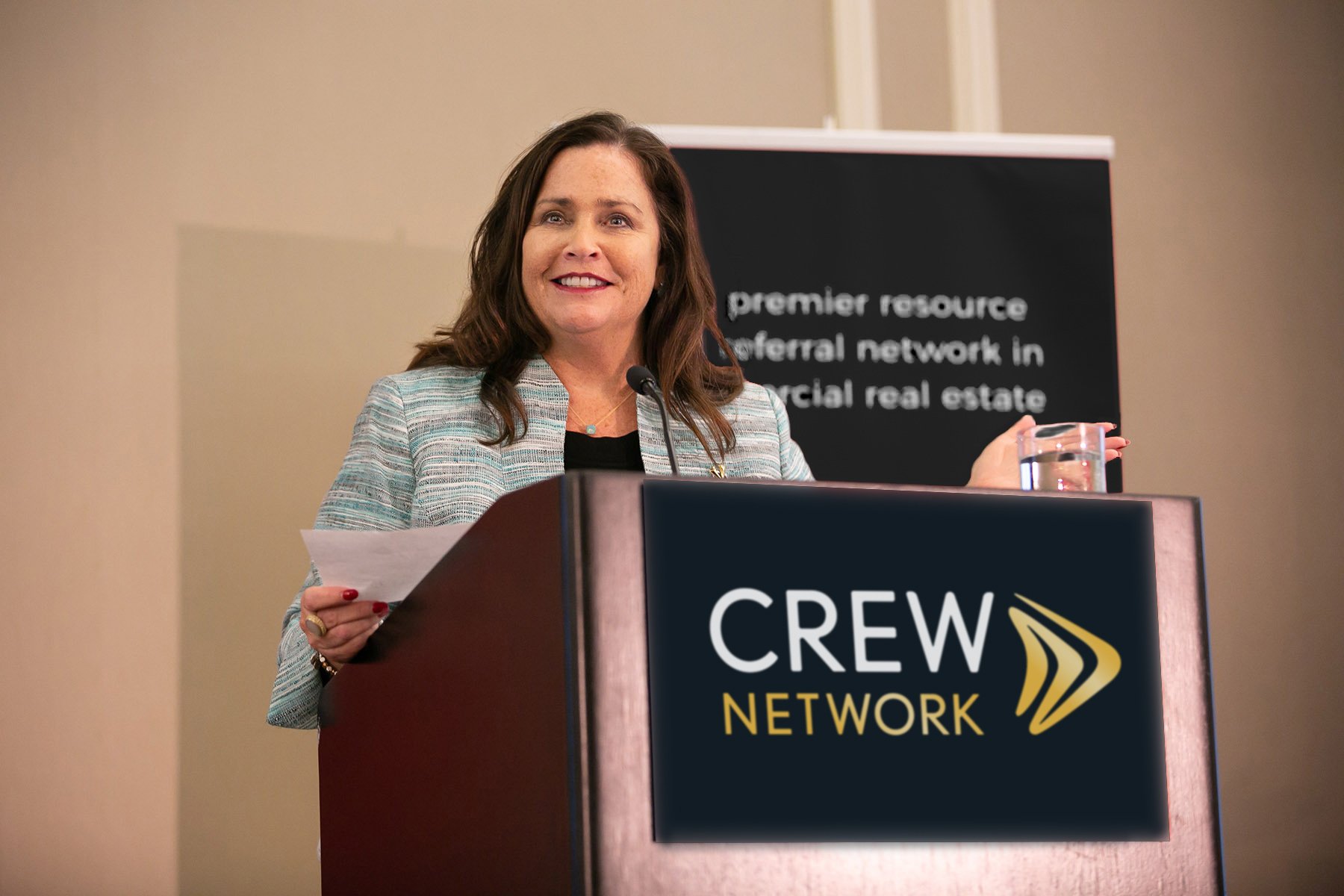 Maria Gonzalez, president of HACE, community development corporation in Philadelphia, was keynote speaker at the 2019 GlobeSt.com Philadelphia conference held Feb. 13
Maria Gonzalez, president of HACE, community development corporation in Philadelphia, was keynote speaker at the 2019 GlobeSt.com Philadelphia conference held Feb. 13
PHILADELPHIA, PA—Philadelphia's diversity is driving commercial real estate activity in the city, according to Maria Gonzalez, president and CEO of HACE, a community development organization working to make its core neighborhoods a place of choice for a mixed income, ethnically diverse population.
Gonzalez, the keynote speaker at ALM's GlobeSt.com Philadelphia Conference on Wednesday, February 13, at the Crystal Tea Room, told about 300 commercial real estate market participants that three primary waves of immigrants have expanded the city's population mix, followed by millennials and their rising interest in urban living.
“We have seen the growth of people coming from Africa, that have settled in neighborhoods in South Philadelphia, West Philadelphia, and Southwest Philadelphia,” she says. “We have experienced a large group of immigrants from Latin America Asia and the Caribbean,” she says. “Philadelphia saw a 41 percent increase in millennials—the largest percentage of any top 10 most populous city in the US.”
Millennials “are better educated and they are wealthier, so they drive a lot of the commercial development that it's happening in our neighborhoods,” she says. “They're attracted by affordable rental and home ownership housing.”
Efforts to enhance Philadelphia's walkability have also attracted baby boomers, who as empty-nesters are more interested in downsizing and enjoying an urban lifestyle with the cultural, dining, and shopping advantages that involves, she says, all of which is pushing housing prices ever higher.
Gonzalez recalled buying her first home in 1996. “I bought my house for forty thousand dollars in South Kensington,” she says, “And now the home prices in that area have been skyrocketing, where new construction homes are going for $350,000.”
Rents in the city are rising but still affordable compared to New York and Washington, DC, she says. But the city is struggling to balance rising gentrification of older neighborhoods with extreme poverty found just a few streets away.
“We see in Philadelphia a tale of two cities, where many neighborhoods are gentrifying and you see robust growth, but also we have one of the highest poverty rates in the nation, next door to all these gentrifying areas,” Gonzalez says. “Organizations like HACE are looking to work to make sure that there is equitable development in our communities.”
Gonzalez says you'll get different answers depending on whom you ask about gentrification's benefits.
“On the upside in gentrifying neighborhoods, we can see increased goods and services and jobs. We can see reduced vacancies where new businesses are popping up and absorbing vacant storefronts, or they're buying our businesses that are retiring that have been here for many, many years. And also it's great for many of our neighborhoods where you see new capital investments in our communities that benefit long term and also new residents,” she says. “The downside can be a reduced demand for existing services. So maybe not everybody wants to see a bodega. They want to see more cafes or different type of businesses. So that may create some type of displacement, and vacant properties may sit for a longer period of time.”
HACE has developed a neighborhood plan in the predominantly Latinx communities it serves, Gonzalez says. It works closely with the City Commerce Department and the Philadelphia Development Corporation to provide incentives to local businesses to set up shop in their neighborhoods. HACE's sidewalk cleaning program and other incentive programs are an effort to create pride and confidence in its neighborhood community.
HACE's achievement is to “really build an infrastructure in our neighborhoods and the support system to be able to manage some of that growth as it comes into our neighborhoods,” she says. “One of the things that we set about to do is create an identity for our neighborhoods, where we work with our elected officials and all the stakeholders to make sure that we branded the community. We were able to build assets in our neighborhood, to have more stability, both for the commercial district and also for that residential area.”
The federal Opportunity Zone program will also have strong benefits for development in HACE's operating areas, Gonzalez says. “That may be another potential avenue to be able to attract new investments into our neighborhood,” she says.
Gonzalez made a pitch for the 300-plus investors, developers, and market participants to consider investing in some of the city's distressed neighborhoods.
“The city's real estate remains a solid value proposition for investors and homeowners,” she says. “We're hopeful that many of you consider investing in our neighborhoods and work with the organizations that are in there serving that community, because together we can also help the long term residents avoid displacement, and we can be more welcoming so that there is a symbiotic energy to our growing neighborhoods.”
More coverage of GlobeSt.com Philadelphia 2019 will appear over the next several days.
© Touchpoint Markets, All Rights Reserved. Request academic re-use from www.copyright.com. All other uses, submit a request to [email protected]. For more inforrmation visit Asset & Logo Licensing.





